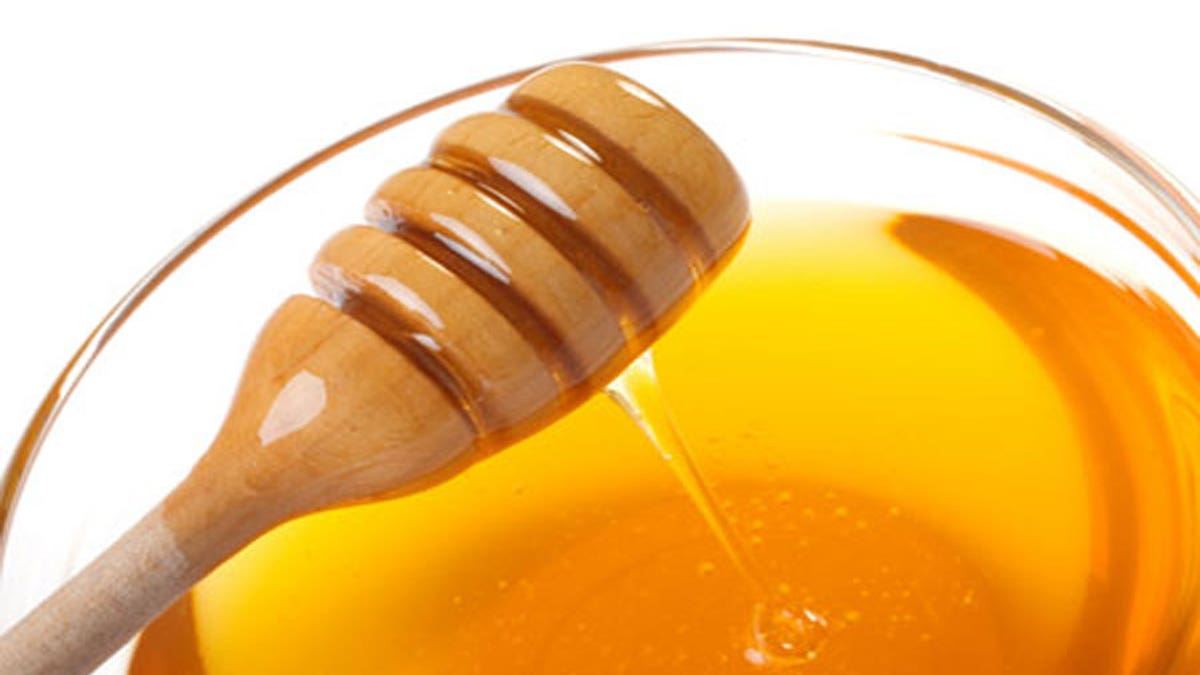
(iStock)
Whether you have a head cold, an upset stomach, or an itchy rash, fast (cheap!) relief may be sitting on your kitchen shelf.
True, some home remedies are simply old wives' tales, but others have stuck around for generations because they actually work, says Dr. Philip Hagen, preventive medicine specialist at the Mayo Clinic. Try grabbing one of these healing ingredients to ease that minor ailment.
Honey
Use it for: Minor cuts and burns, cough or sore throat
How it works: Most of us have tried honey in tea to soothe a scratchy throat, but it's also been used to treat wounds for thousands of years. Last year, a review of research found that honey helps heal minor to moderate burns, and a recent Dutch study identified a protein called defensin-1 that gives the goo its antibacterial action.
Try this: Apply warm honey to a minor cut or mild burn, then put a gauze bandage on top; change the dressing daily. However, if you have a burn or wound accompanied by swelling, fever, or pain, check with a doctor instead; it may require oral antibiotics.
_____________________________________________________
More From Health.com:
Want to Skip the Doctor? Try This
What Belongs in Your Medicine Cabinet?
Top 7 Natural Cold Remedies: Do They Work?
_____________________________________________________
Salt
Use it for: Sinus congestion, sore throat
How it works: "When you mix salt into water at a stronger concentration than the salt water in our bodies, it helps draw fluids out of tissues," explains Dr. Hagen.
Try this: For a sore throat, dissolve half a teaspoon of non-iodized salt in an 8-ounce glass of water, and simply gargle the water. To flush out your sinuses, fill a clean squeeze bottle or neti pot with the solution, lean over a sink, and squeeze or pour it into your nostril. Use only sterile bottled or tap water that has been boiled and then cooled, in your nose. (Reportedly at least two people died last year after clearing their sinuses using unfiltered tap water that contained a dangerous microbe.)
Peppermint tea
Use it for: Indigestion, stomachache
How it works: The oil found in the peppermint leaf and its stems calms the muscles of the digestive tract, allowing gas to pass more easily and relieving indigestion, Dr. Hagen says. Steer clear of peppermint tea, though, if your pain is caused by reflux—you'll know from the acidic, burning feeling in your chest. (It can actually aggravate this problem by relaxing the lower esophageal sphincter, which lets stomach acids flow back into the esophagus.)
Try this: Brew a cup of peppermint-leaf tea and drink up.
Meat tenderizer
Use it for: Bee stings, nonpoisonous spider bites
How it works: Meat tenderizer contains papain, an enzyme that breaks down proteins (like the ones in your T-bone steak). But papain can also break down toxins from bug bites and cut back on itching, Dr. Schaffran says. Note: Use tenderizer only on mosquito bites, bee stings, and nonpoisonous spider bites. If you experience symptoms such as nausea, difficulty breathing, or cramping in your abs or lower back, seek medical help immediately.
Try this: Mix a small amount of meat tenderizer with water to make a paste and apply to the bite. Leave on for 10 to 15 minutes, then rinse with warm water.
Oatmeal
Use it for: Eczema, sunburn, hives
How it works: Oats pack phytochemicals with anti-inflammatory properties that soothe itchy and inflamed skin, a study in the Archives of Dermatological Research shows. Most MDs recommend using the finely ground colloidal type sold in drugstores, but any unflavored oatmeal will help.
Try this: If you're using regular oatmeal, grind it into a fine powder, Dr. Schaffran says. Put a cup of oats through a food processor until they dissolve easily into a glass of water. Pour the solution into a bathtub full of warm water and soak for 15 minutes. Using colloidal oats? Just sprinkle them into the tub and say ahhh.
